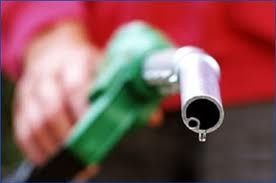BISHKEK (TCA) — The situation with motor fuel is aggravated by a dramatic increase in the smuggling of petroleum products in Kyrgyzstan.
Bypassing tax payments
The Anti-Corruption Service (ACS) of the State National Security Committee of Kyrgyzstan recently prevented the import of gasoline to Kyrgyzstan from Kazakhstan bypassing mandatory tax payments.
At a private tank farm, the ACS detained three tank wagons (180 tons) with AI-92 gasoline which arrived from the Bishkek-1 railway station under the guise of raw materials, gas condensate. The facts of sale of these fuels were found at some gas stations in the northern Chui province.
In addition, at the tank farm, the ACS officers detained four fuel tank trucks with fake shipping documents.
Currently, the National Security Committee is verifying the possible involvement of employees of fiscal and other regulatory agencies in organizing this smuggling channel.
Smuggled products have seized the country, said Kyrgyz Parliament Member Ekmat Baibakpayev, proposing to consider this issue before the parliamentary holidays.
The state is losing billions of soms as well as bona fide fuel suppliers, MP Kojobek Ryspaev added.
MPs advised the Government to sign an agreement with Kazakhstan, introduce automated systems at all filling stations in the country, as well as to introduce state labeling of petroleum products and adopt the EEU (Eurasian Economic Union) mandatory technical regulations to enter into force in Kyrgyzstan on August 12, 2019.
According to experts, the share of shadow fuel turnover was about 25 percent in Kyrgyzstan in 2018. Every fourth liter of gasoline in Kyrgyzstan was sold illegally, bypassing the payment of taxes to the state budget.
The illegal import and sale of petroleum products allows unscrupulous oil traders to pay only 3.2 soms per liter to the state budget, while bona fide taxpayers pay up to 7 soms per liter.
According to the Oil Traders Association of Kyrgyzstan, the state budget losses for only two types of taxes (excise and VAT) are about 3 billion soms.
Savings on duties
To reduce the fuel smuggling, the Oil Traders Association urged the Government to speed up the signing of an agreement with Kazakhstan on the fuel supply.
Russia is Kyrgyzstan’s only fuel supplier, since in December 2018 Kyrgyzstan and Russia signed the indicative balance for duty-free supplies of fuel for 2019.
The volume of supply remained the same as for the previous year — about 1 million tons, including 460 thousand tons of gasoline, 485 thousand tons of diesel fuel, 100 thousand tons of jet fuel, and 50 thousand tons of oil. However, the terms of the contract provide for a change in the volume of deliveries.
Kyrgyzstan monthly imports an average of 70 thousand to 100 thousand tons of motor fuel. The country’s demand for petroleum products was 90 percent covered by supplies from Russia and Kazakhstan. The remaining 10 percent were mainly provided by the Junda refinery in the Chui province and the Jalal-Abad refinery in the south of the country.
According to the Oil Traders Association, the savings on duties amounted to $40.1 million in 2018 and $11.9 million in the first four months of this year.
The association considers it expedient and beneficial to Kyrgyzstan to organize fuel supply from neighboring Kazakhstan.
Prolonged negotiations
Earlier, Kazakhstan banned the export of petroleum products due to a shortage of fuel on its own market. The country’s three large refineries were modernized last year, and there is a permanent surplus of gasoline production in Kazakhstan. There is a need to export, and Kyrgyzstan has to take advantage of this situation.
Fuel deliveries from Kazakhstan would help lower retail fuel prices in Kyrgyzstan. Competition between Russian and Kazakh producers will entail a lower purchase price for Kyrgyz oil traders in the long term.
However, the negotiations between the governments of Kyrgyzstan and Kazakhstan on the supply of duty-free petroleum products have been unsuccessful for about a year.
“Our market, which is part of the Eurasian Economic Union, was among the first where it was planned to export Kazakhstan’s gasoline. But during the lengthy negotiations with our Government, the Kazakh side concluded agreements on the export of petroleum products outside the EEU — to Uzbekistan, Tajikistan, Afghanistan and other countries. There is a risk that Kyrgyzstan may be left without Kazakhstani gasoline, which will be sent to other markets,” the Oil Traders Association said.
Kazakhstan is ready to supply oil to Belarus (through Russia) if it settles this issue with Russia, Ambassador of Kazakhstan in Minsk Yermukhamet Yertysbayev told BelTA on May 23. “We are ready, and there are no problems at all. We have plenty of oil and oil products,” he added.
“It will be disadvantageous for Russians because they have plenty of their own oil. But we would like the Eurasian Economic Union to be beneficial to all participants, and it is very important to support each other,” the Ambassador concluded.
Business recommendations
To solve the problem, the Oil Traders Association of Kyrgyzstan proposed to complete intergovernmental negotiations and sign an agreement on duty-free deliveries of petroleum products from Kazakhstan to Kyrgyzstan. It is necessary to remove the unreasonable and constraining negotiations requirements, for example, on the possibility of re-export of petroleum products derived from Kazakh oil.
It is also vital to transform the tax administration system in the fuel market through introduction of an electronic automated system of accounting and control of petroleum products at all gas stations.
The Association advised to introduce the labeling of all imported and produced petroleum products to protect consumers from counterfeit products.
The proposals are based on the best international experience and are among the most common and effective methods to combat the shadow traffic in the fuel market, the Oil Traders Association said.
Government measures
According to the Economy Ministry of Kyrgyzstan, there are 925 gas stations in the country, which operate using cash registers with the function of fixing and transmitting data in real time (KKM-online), and 310 of them are owned by six major fuel suppliers. 270 gas stations are ready to transfer to the automatic system.
If this happens, the state tax authorities could increase their control over the remaining 655 gas stations in the country.
On the basis of these calculations, the Economy Ministry drafted a Government Resolution “On accounting and control of oil and petroleum products in the Kyrgyz Republic”, aimed to minimize the shadow fuel market.









